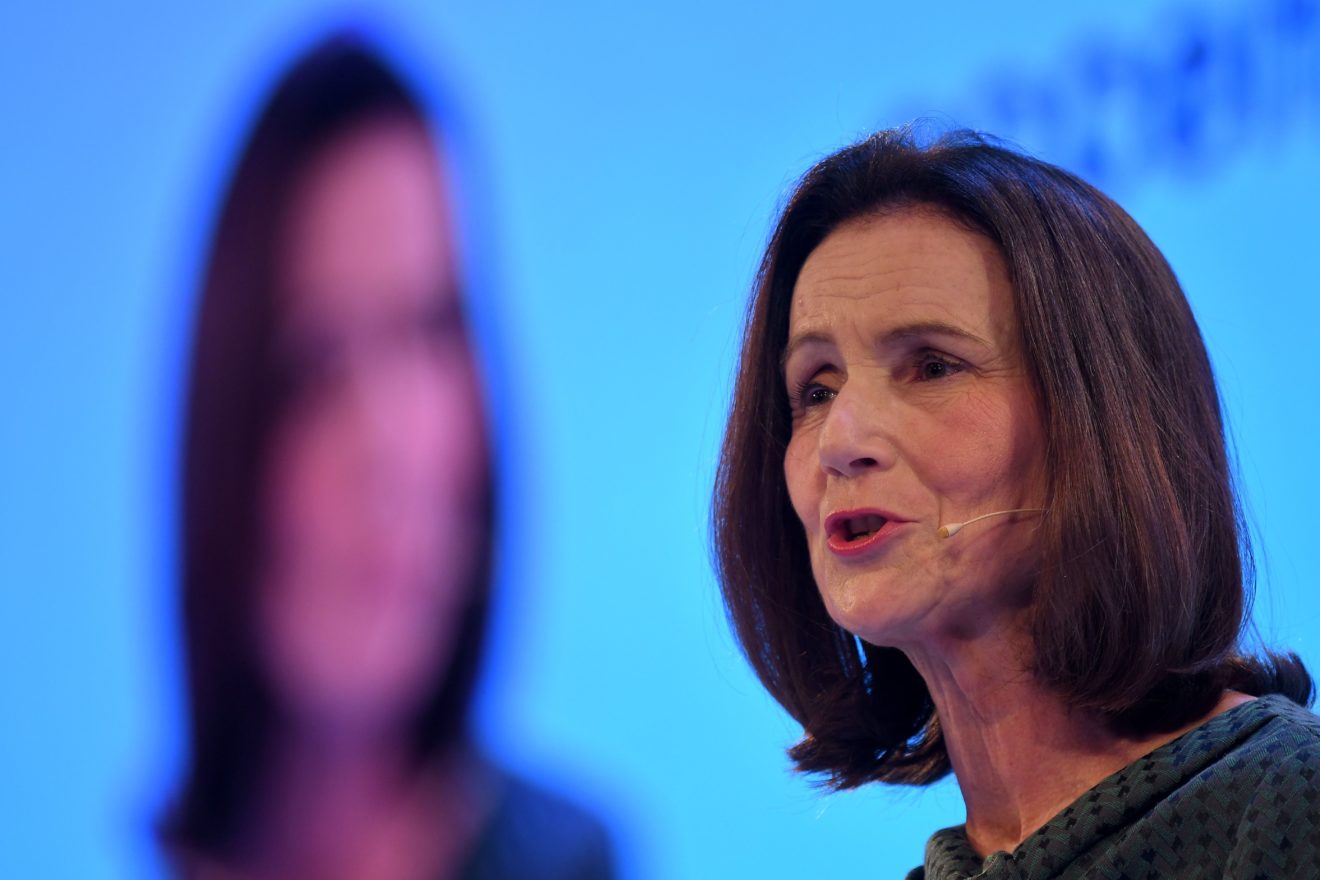LONDON — The coronavirus has created a “Darwinian moment” for the U.K. economy, which the government needs to match with a massive job creation progra
LONDON — The coronavirus has created a “Darwinian moment” for the U.K. economy, which the government needs to match with a massive job creation program, the outgoing head of business lobby group the Confederation of British Industry said.
Carolyn Fairbairn, speaking to POLITICO as she ends her five-year term as director general of the CBI, said the work of economic revival needed to start even before the immediate pandemic crisis has passed.
Praising the government’s work to protect jobs to date, which the CBI advised the Treasury on, Fairbairn nonetheless warned that a second national lockdown, without more support and without allowing “COVID-secure” businesses to continue operating where possible, could lead to “permanent damage.” (Fairbairn spoke to POLITICO on Friday, before the government’s announcement of new national COVID-19 restrictions.)
Proposing a new “national commission for economic recovery” consisting of businesses, government, unions, universities, colleges and local leaders, she said that to leave such an effort until after the crisis had ended would mean it was “too late.” She added that the government should learn lessons from the spring in managing the economy through further national restrictions and that firms were now COVID-secure, testing capacity had been transformed and “tried and tested” financial packages are in place.
“By the time you put in place all the sensible measures you might want, people will have already lost their jobs,” she said. “I have a real worry about the next generation and unemployment. The single thing I think the government could do which would make the most difference is to work with business, hand in glove, to create a one-year revival plan that is practical, that is directed at job creation.”
Fairbairn — whose tenure coincided with the Brexit referendum, two general elections, and the COVID-19 pandemic — said that while it had been a “really challenging time for the relationship between business and government,” relations were now improving, including on Brexit.
The CBI, which campaigned strongly for the U.K. to remain in the European Union ahead of the 2016 referendum and have consistently warned since of the consequences of leaving without a trade deal, found themselves somewhat frozen out when Boris Johnson and his Vote Leave team took over in Downing Street.
On a call with Johnson and Cabinet Office Minister Michael Gove in October, Fairbairn said she had proposed a joint “Brexit preparations taskforce” to ensure businesses do all they can to be ready for new trading terms with the EU on January 1, something she said the pair had “enthusiastically embraced.” Others in that meeting said they were disappointed the meeting was short and felt more “like a monologue” than a conversation.
Having been the “architects” of the stand-still, post-Brexit transition period which will end on December 31, Fairbairn said the CBI was not now proposing any extension or comparable pause in the process, despite COVID-19 pressures on businesses.
“We have not called for a transition period this time around because we thought it would be counterproductive. We actually felt that it would militate against getting a [trade deal with the EU] and the number one message from our members was ‘get a deal,’” Fairbairn said. “At the point at which there is a deal, I think having a conversation around how we ease the process for businesses on both sides is a really, really valuable conversation; a practical, common-sense one.”
In the U.K., the government has already said it will not conduct full checks on goods arriving from the EU until July 2021, in a bid to avoid disruption at the Channel ports. Fairbairn said she hoped comparable measures on the EU side would be considered.
“The fact is we will have regulatory alignment on day one … On the U.K. side we are simply saying that we will not check trucks coming in from Calais … That would be a practical, common sense thing to do. We hope that kind of practical measure would be considered [on the EU side].”
The approach was preferable to another transition period, she said, because it was less politically-loaded.
“The minute you start talking about standstill transitions, you put it back into the political, ideological sphere. Let’s keep this practical. This is about keeping trucks going, keeping food on shelves and enabling our businesses to keep trading. There really is interest on both sides of the Channel to make that happen.”
Source : www.politico.eu

